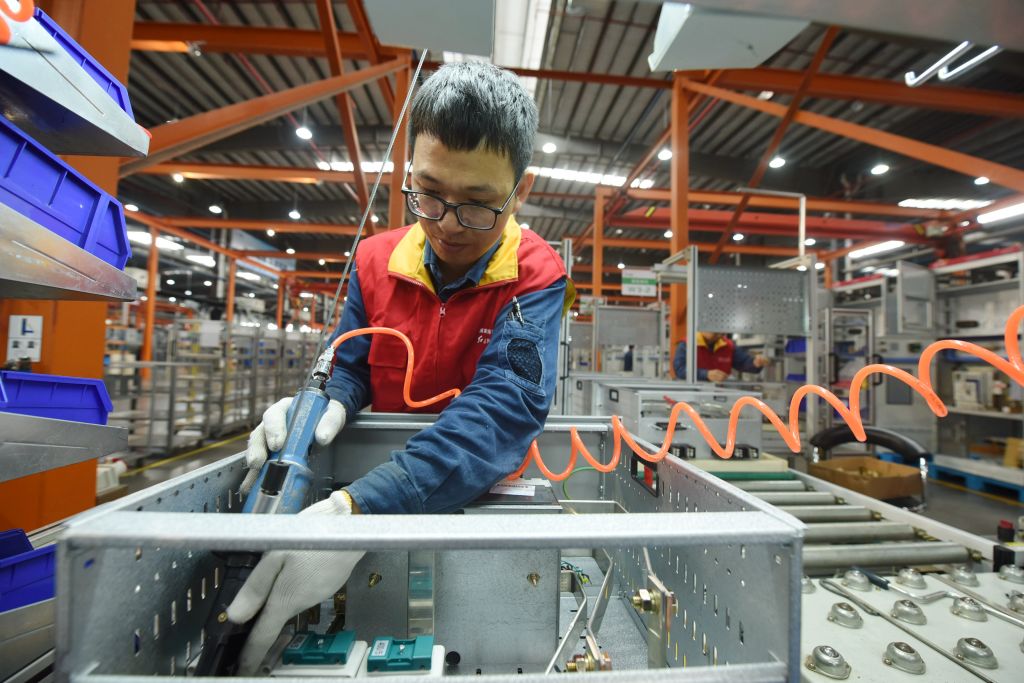China is reaping the economic benefits of its COVID-19 policies


A free daily email with the biggest news stories of the day – and the best features from TheWeek.com
You are now subscribed
Your newsletter sign-up was successful
China reported Monday that its gross domestic product expanded by 4.9 percent in the third quarter compared with a year earlier, putting the country on track for economic growth of between 1.9 percent and 2.5 percent in 2020. The U.S., meanwhile, will see its economy shrink by 4.3 percent this year, while European nations will contract by 8.3 percent, according to International Monetary Fund projections.
China, like most of the world, saw its economy contract sharply in the second quarter, due to the COVID-19 pandemic that started in Wuhan. "But since then, China has staged a dramatic economic recovery due to extensive, mandatory testing and quarantine policies," NPR reports. "Daily new cases of the coronavirus have dropped to single digits. Subsequent outbreaks were contained by strict, city-by-city lockdowns that have allowed the national economy to continue operating even as some regions were temporarily sealed off."
Beijing paved the way for a return to economic growth "in roughly three stages," The Wall Street Journal reports: Shutting down its economy from January through March, firing up its factories starting in April, and — "having almost entirely stamped out the coronavirus within its borders — encouraging consumers to begin venturing outside of their homes and opening up their wallets." This resumption of manufacturing has increased China's share of global exports and economic influence, and has widened its trade surplus with the U.S.
The Week
Escape your echo chamber. Get the facts behind the news, plus analysis from multiple perspectives.

Sign up for The Week's Free Newsletters
From our morning news briefing to a weekly Good News Newsletter, get the best of The Week delivered directly to your inbox.
From our morning news briefing to a weekly Good News Newsletter, get the best of The Week delivered directly to your inbox.
Because consumption is still soft in China and other countries, the country is now making more goods than people are able or willing to buy. Economists will be watching China's inventories for signs that its economic expansion is sustainable.
A free daily email with the biggest news stories of the day – and the best features from TheWeek.com
Peter has worked as a news and culture writer and editor at The Week since the site's launch in 2008. He covers politics, world affairs, religion and cultural currents. His journalism career began as a copy editor at a financial newswire and has included editorial positions at The New York Times Magazine, Facts on File, and Oregon State University.
-
 The Olympic timekeepers keeping the Games on track
The Olympic timekeepers keeping the Games on trackUnder the Radar Swiss watchmaking giant Omega has been at the finish line of every Olympic Games for nearly 100 years
-
 Will increasing tensions with Iran boil over into war?
Will increasing tensions with Iran boil over into war?Today’s Big Question President Donald Trump has recently been threatening the country
-
 Corruption: The spy sheikh and the president
Corruption: The spy sheikh and the presidentFeature Trump is at the center of another scandal
-
 TikTok secures deal to remain in US
TikTok secures deal to remain in USSpeed Read ByteDance will form a US version of the popular video-sharing platform
-
 Unemployment rate ticks up amid fall job losses
Unemployment rate ticks up amid fall job lossesSpeed Read Data released by the Commerce Department indicates ‘one of the weakest American labor markets in years’
-
 US mints final penny after 232-year run
US mints final penny after 232-year runSpeed Read Production of the one-cent coin has ended
-
 Warner Bros. explores sale amid Paramount bids
Warner Bros. explores sale amid Paramount bidsSpeed Read The media giant, home to HBO and DC Studios, has received interest from multiple buying parties
-
 Gold tops $4K per ounce, signaling financial unease
Gold tops $4K per ounce, signaling financial uneaseSpeed Read Investors are worried about President Donald Trump’s trade war
-
 Electronic Arts to go private in record $55B deal
Electronic Arts to go private in record $55B dealspeed read The video game giant is behind ‘The Sims’ and ‘Madden NFL’
-
 New York court tosses Trump's $500M fraud fine
New York court tosses Trump's $500M fraud fineSpeed Read A divided appeals court threw out a hefty penalty against President Trump for fraudulently inflating his wealth
-
 Trump said to seek government stake in Intel
Trump said to seek government stake in IntelSpeed Read The president and Intel CEO Lip-Bu Tan reportedly discussed the proposal at a recent meeting
